
0
+
Google Reviews

0
+
4.8 (2094 Ratings)
Manual Testing is a structured process of evaluating software applications by human testers to ensure that they meet specified requirements and quality standards. Manual Testing is valuable for various reasons, including its adaptability to different testing scenarios, early-stage testing, and its ability to assess the user experience. However, it can be time-consuming and may not be practical for repetitive or large-scale testing efforts.


Curriculum Designed by Experts
What is testing?
Why is testing necessary?
Economics of Testing:
Black Box Testing
White Box Testing
Software Testing Principles
STLC (Software Testing Life Cycle)
Software Development models:
Waterfall model
V – Model
Spiral model
Prototype model (RAD)
Agile methodology
Reviews and the test process
Review Process
Inspections and Walkthroughs
Code Inspection
Identifying test conditions and designing test cases
Categories of test design techniques
Specification-based or black-box techniques
Boundary Value Analysis
Decision Table Testing
Equivalence Partitioning
State Transition Testing
Use Case Testing
Structure-based or white-box techniques
Code Coverage
Decision Coverage
Statement Coverage
Structural Testing
Experience-based techniques
Error Guessing
Exploratory Testing
Choosing a test technique
Test Organization
Test Plans, Estimates, and strategies
Test progress monitoring and control
Configuration Management
Risk and Testing
Incident Management
Function Testing
Volume Testing
Stress Testing
Usability Testing
Security Testing
Performance Testing
Configuration Testing
Reliability Testing
Recovery Testing
The Quality Center Testing Process
Starting Quality Center
The Quality Center Window
Defining Releases and Cycles
Viewing Releases and Cycles
Defining Requirements
Viewing Requirements
Modifying Requirements
Converting Requirements
Developing a Test Plan Tree
Designing Test Steps
Copying Test Steps
Calling Tests with Parameters
Creating and Viewing Requirements Coverage
Defining Test Sets
Adding Tests to a Test Set
Scheduling Test Runs
Running Tests Manually
Viewing and Analyzing Test Results
How to Track Defects
Adding New Defects
Matching Defects
Updating Defects
Linking Defects to Tests
Creating Favorite Views
Course on Manual Testing Your training gives you marketable abilities. like test case design, bug tracking, and reporting. Master tools and techniques to ensure software quality. Enroll in a certification program for manual testing to advance your career in QA by learning key testing methodologies and industry standards.
Manual Testing Course Training opens doors to diverse career opportunities, including roles like QA Tester, Test Analyst, and QA Engineer. Enroll in Manual Testing Course Certification to master testing skills, ensuring software quality and unlocking career growth in the ever-evolving software industry.
Boost your career with our Manual Testing Course Certification. With the rise of Cloud Adoption, manual testers are in high demand to ensure seamless cloud migration and functionality. Enroll now and gain hands-on skills from industry experts to excel in the evolving software testing landscape.
Boost your career by mastering the Scalability and Flexibility of manual testing with our Manual Testing Course Certification. Learn essential techniques to adapt testing processes to dynamic projects, ensuring high-quality results across different platforms. Enroll now to gain valuable skills for any project scale.
Master Cost Management in software projects with our Manual Testing Course Certification. Learn how effective manual testing can reduce costs by detecting bugs early, preventing expensive fixes later. Enroll today to gain valuable skills and optimize your testing process for budget-friendly outcomes.
Enrolling in a Manual Testing course ensures strong skills in identifying security vulnerabilities and maintaining compliance standards. Through this certification, learn manual testing techniques to enhance software security, ensuring your applications meet industry regulations and safety requirements.
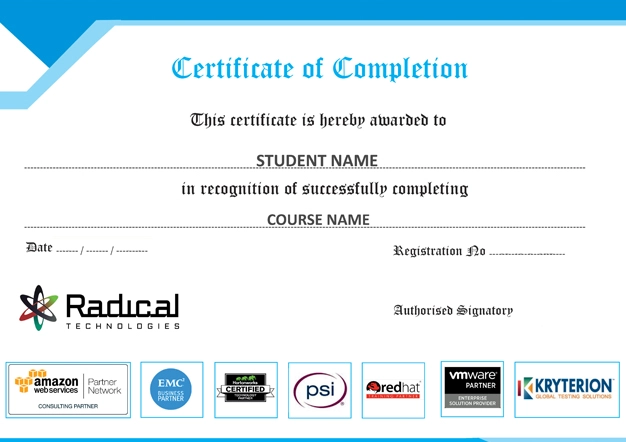
Weekday
08:30 AM TO 09:30 AM IST (GMT +5:30)


At Radical Technologies, we are committed to your success beyond the classroom. Our 100% Job Assistance program ensures that you are not only equipped with industry-relevant skills but also guided through the job placement process. With personalized resume building, interview preparation, and access to our extensive network of hiring partners, we help you take the next step confidently into your IT career. Join us and let your journey to a successful future begin with the right support.
At Radical Technologies, we ensure you’re ready to shine in any interview. Our comprehensive Interview Preparation program includes mock interviews, expert feedback, and tailored coaching sessions to build your confidence. Learn how to effectively communicate your skills, handle technical questions, and make a lasting impression on potential employers. With our guidance, you’ll walk into your interviews prepared and poised for success.
At Radical Technologies, we believe that a strong professional profile is key to standing out in the competitive IT industry. Our Profile Building services are designed to highlight your unique skills and experiences, crafting a resume and LinkedIn profile that resonate with employers. From tailored advice on showcasing your strengths to tips on optimizing your online presence, we provide the tools you need to make a lasting impression. Let us help you build a profile that opens doors to your dream career.

Infrastructure Provisioning
Implementing automated infrastructure provisioning and configuration management using Ansible. This may include setting up servers, networking devices, and other infrastructure components using playbooks and roles.

Applications Deployment
Automating the deployment and orchestration of applications across development, testing, and production environments. This could involve deploying web servers, databases. middleware, and other application components using Ansible

Continuous Integration
Integrating Ansible into CI/CD pipelines to automate software. build, test, and deployment processes. This may include automating the creation of build artifacts, running tests, and deploying applications to various environments.

After completing the Manual Testing Certification Courses at Radical Technologies in Bangalore, I feel well-prepared to take on software testing roles. The trainers were experienced, and the certification added significant value to my skillset.
The Manual Testing Course Online at Radical Technologies is perfect for those who want flexibility in learning. The instructors were approachable, and the learning material was easy to follow, making it a great experience.
The Manual Testing Complete Course at Radical Technologies in Bangalore provided me with all the necessary skills to succeed in the software testing field. The hands-on training and real-life case studies were particularly helpful.
I took the Best Manual Testing Course Online through Radical Technologies and was highly satisfied with the learning experience. The course content was current and relevant, and the instructors were very knowledgeable.
The Manual Software Testing Full Course I attended at Radical Technologies in Bangalore was very detailed and covered all aspects of manual testing. The instructors were excellent, and the hands-on projects were very beneficial.
Radical Technologies' Manual Testing Certification Online course is one of the best I’ve taken. The certification has helped me advance in my career, and the online format made it convenient to learn at my own pace.
The Manual Testing Classes at Radical Technologies in Bangalore were well-structured, and the trainers were extremely supportive. The practical sessions helped me get a strong grip on manual testing techniques.
I completed the Online Course For Manual Testing at Radical Technologies, and it was a fantastic experience. The course was thorough, and the trainers ensured that all my questions were answered, making it easy to understand complex topics.
The Courses For Manual Testing at Radical Technologies offer the perfect balance of theory and hands-on experience. The Manual Testing Training Near Me in Bangalore was easily accessible and provided excellent learning opportunities.
The Manual Software Testing Training at Radical Technologies in Bangalore is highly recommended for those looking to advance their careers. The instructors are experienced professionals, and the practical assignments helped me apply the theoretical concepts effectively.
I chose the Manual Testing Course With Certificate from Radical Technologies and was thoroughly impressed with the quality of instruction. The course content was up-to-date, and the certification helped me secure a job in software testing.
Radical Technologies' Manual Testing Classes Near Me in Bangalore were highly informative and practical. The sessions were well-organized, and the trainers made sure to cover all key aspects of manual testing in detail.
The Manual Testing Full Course I took at Radical Technologies in Bangalore was exceptional. The course materials and hands-on projects prepared me for real-world challenges, making me more confident in my testing skills.
I was able to enroll in Manual Testing Online Classes through Radical Technologies, which allowed me to learn from home. The classes were interactive, and the trainers provided valuable insights that helped me understand the testing process better.
The Manual Testing Course For Beginners at Radical Technologies in Bangalore is ideal for those new to software testing. The trainers were patient, and the course provided a solid foundation for my future career in testing.
I completed the Manual Software Testing Full Course at Radical Technologies in Bangalore, and it was a fantastic learning journey. The faculty was supportive, and the course covered every essential topic in manual testing.
The Manual Testing Online Course With Certificate at Radical Technologies was exactly what I needed to kickstart my career. The certification has added significant value to my resume, and the skills I acquired have been highly beneficial.
Radical Technologies provided the Best Manual Testing Course I could find in Bangalore. The in-depth course structure, along with practical testing scenarios, helped me prepare for real-time projects in the manual testing domain.
I opted for the Manual Testing Training Online through Radical Technologies, and I must say, it was a great experience. The online format was well-organized, and the instructors ensured that the classes were interactive and engaging.
The Manual Testing Certification Courses offered by Radical Technologies in Bangalore are perfect for anyone looking to gain expertise in manual testing. The trainers were knowledgeable, and the practical exercises were extremely helpful in mastering testing concepts.
I was searching for a Manual Testing Course Near Me and found Radical Technologies in Bangalore. The course exceeded my expectations with its detailed curriculum and experienced trainers, making it the best choice for manual testing training.
The Manual Software Testing Course I completed at Radical Technologies in Bangalore has significantly boosted my career prospects. The course content was well-structured, and the trainers were always available to clear doubts.
Radical Technologies offers the Best Manual Testing Course Online, with flexible schedules and expert trainers. The Manual Testing Classes Online helped me gain confidence in my testing skills while balancing work and study.
I enrolled in the Manual Testing Certification in Bangalore at Radical Technologies and found it to be the best course for beginners. The training was comprehensive, and the instructors ensured that every concept was explained in detail, making it easy to follow.
The Manual Testing Course in Bangalore at Radical Technologies provided me with hands-on experience and practical knowledge. The real-world examples and guidance from the trainers were invaluable in helping me understand manual testing concepts thoroughly.








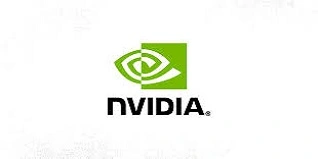
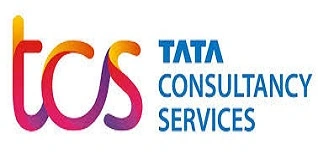

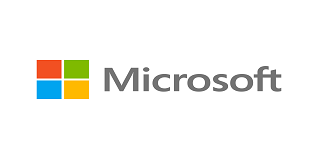


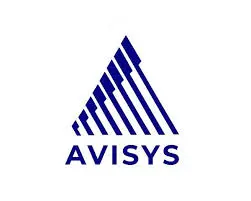





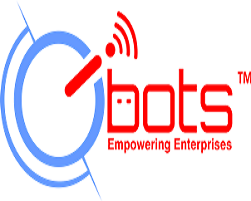

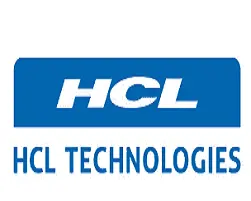

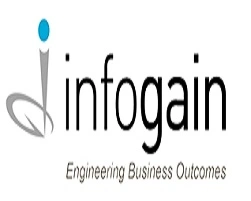

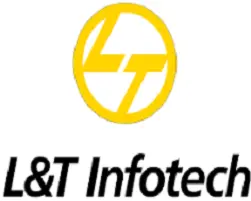
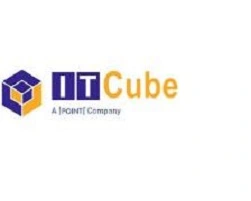
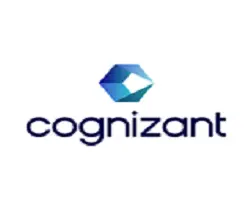



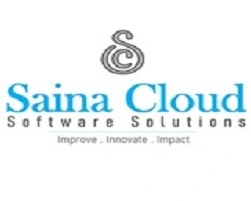






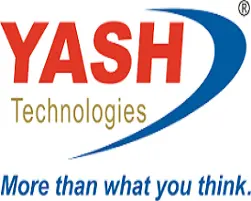

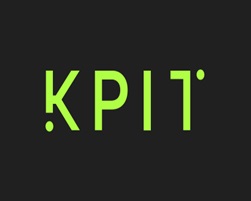
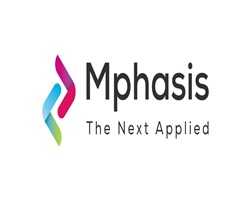
Manual testing is the process of manually executing test cases without using automation tools. It involves testing software applications to identify bugs, defects, or issues by performing test operations as an end-user.
Manual testing is crucial for verifying the user interface, usability, and user experience of an application. It allows testers to identify visual issues, functional flaws, and bugs that require human judgment, which automation tools may not detect.
The main types of manual testing include functional testing, regression testing, smoke testing, sanity testing, exploratory testing, usability testing, and acceptance testing.
Manual testing requires human intervention to execute test cases, while automated testing uses tools to run scripts automatically. Manual testing is ideal for exploratory, usability, and ad-hoc testing, whereas automated testing is more suitable for repetitive or large-scale tests.
Manual testing is preferred when testing new features, performing exploratory testing, usability testing, or when dealing with small or rapidly changing projects. It’s also useful when testing areas where human observation is critical, such as design and user experience.
Exploratory testing is an approach where testers explore the application without predefined test cases. It is unscripted and focuses on finding bugs based on the tester’s knowledge, creativity, and intuition about the software.
A test case is a set of actions or steps that testers follow to verify the functionality of a specific feature or component of the software. Each test case contains inputs, execution steps, expected results, and actual results.
Effective test cases are clear, concise, and detailed. They include a specific test objective, well-defined steps, expected outcomes, and inputs. Test cases should also cover different scenarios, including positive and negative paths, edge cases, and boundary values.
The Software Testing Life Cycle (STLC) refers to the series of steps involved in testing, including requirement analysis, test planning, test case development, environment setup, test execution, and test closure. Each phase has specific deliverables and tasks aimed at ensuring the software meets quality standards.
Functional testing verifies that the software behaves according to its functional requirements, focusing on what the system does. Non-functional testing, on the other hand, evaluates aspects like performance, security, usability, and reliability, focusing on how the system performs under specific conditions.
Regression testing ensures that new changes or enhancements in the software do not negatively impact existing functionalities. Testers re-execute previously passed test cases to verify that no new defects have been introduced.
Some common challenges include time constraints, difficulty in covering large test cases, human errors, lack of documentation, maintaining consistency across multiple test executions, and identifying all edge cases without predefined automation tools.
Popular tools used for bug tracking in manual testing include Jira, Bugzilla, Mantis, and Redmine. These tools help testers log, track, and manage defects throughout the testing process.
Usability testing evaluates how easy and user-friendly an application is. It involves real users performing tasks on the software to determine how efficiently they can complete tasks and how intuitive the interface is. It’s important to ensure a positive user experience.
When reporting a bug, testers should provide detailed information, including the bug’s ID, description, severity, steps to reproduce, expected and actual results, screenshots, and logs if applicable. Clear bug reports help developers understand and resolve issues more efficiently.
Basavanagudi | HSR Layout | Sadashivanagar | Jayanagar | Koramangala | Whitefield | Banashankari | Marathahalli | BTM Layout | Electronic City | Rajajinagar | Domlur | Indiranagar | Malleshwaram | Yelahanka | Cooke Town | Nagarbhavi | Bannerghatta Road | Chandapura | Dasarahalli | Devanahalli | Anandnagar | Avenue Road | Byatarayanapura
I had an amazing experience with this service. The team was incredibly supportive and attentive to my needs. The quality of the work exceeded my expectations. I would highly recommend this to anyone looking for reliable and professional service."
I had an amazing experience with this service. The team was incredibly supportive and attentive to my needs. The quality of the work exceeded my expectations. I would highly recommend this to anyone looking for reliable and professional service."
I had an amazing experience with this service. The team was incredibly supportive and attentive to my needs. The quality of the work exceeded my expectations. I would highly recommend this to anyone looking for reliable and professional service."
I had an amazing experience with this service. The team was incredibly supportive and attentive to my needs. The quality of the work exceeded my expectations. I would highly recommend this to anyone looking for reliable and professional service."
I had an amazing experience with this service. The team was incredibly supportive and attentive to my needs. The quality of the work exceeded my expectations. I would highly recommend this to anyone looking for reliable and professional service."
Manual testing remains a critical skill in the software development lifecycle, ensuring the highest level of product quality by manually identifying bugs, defects, and performance issues that automated tools might overlook. The Manual Testing Certification is designed to equip participants with a thorough understanding of the core principles, methodologies, and tools involved in manual testing. This certification is ideal for aspiring testers, quality assurance professionals, and developers aiming to enhance their understanding of manual testing practices.
Upon completing the Manual Testing Certification, participants are well-prepared to pursue roles such as:
With the certification, you can expect to gain a strong foothold in the testing domain, opening opportunities in diverse industries
Manual testing plays a crucial role in ensuring the quality of software applications across various domains. Despite advancements in automated testing, manual testing is indispensable for certain scenarios that require human observation, intuition, and analysis. Below are some key applications where manual testing is essential:
1. User Interface (UI) Testing
Manual testing is highly effective in validating the look and feel of a software application. UI elements such as buttons, text fields, menus, and graphics need to be visually inspected to ensure that they meet design specifications and function as intended. Manual testers can identify inconsistencies, alignment issues, font problems, and overall user experience that automated tools may overlook.
2. Usability Testing
One of the primary applications of manual testing is usability testing, where the focus is on evaluating the software’s ease of use from an end-user perspective. Testers manually navigate the application to ensure it is user-friendly, intuitive, and efficient. This testing is crucial for understanding how real users will interact with the software and for identifying any usability bottlenecks or pain points.
3. Ad-Hoc and Exploratory Testing
Manual testing excels in ad-hoc and exploratory testing, where testers rely on their creativity and experience to test the application without following predefined test cases. This allows testers to explore the software freely and uncover unexpected defects or behaviors that scripted automated tests might miss. Exploratory testing is particularly valuable in agile environments, where continuous feedback is essential.
4. Cross-Browser and Cross-Platform Testing
With the vast number of devices, operating systems, and browsers available today, it’s critical to ensure that applications function correctly across different environments. Manual testing is used to check how software behaves on different platforms (e.g., Windows, macOS, Android) and browsers (e.g., Chrome, Firefox, Safari). This helps identify compatibility issues that automated tests may not cover comprehensively.
5. Localization and Internationalization Testing
For applications deployed in different regions and languages, manual testing is essential to verify that translations, date formats, currency symbols, and cultural nuances are correctly implemented. Testers review the application’s content and interface to ensure that language and localization requirements are met, as well as testing for errors that could arise due to varying character sets.
6. Functional Testing
Functional testing ensures that the software operates according to the specified requirements. In this context, manual testing is used to validate individual functions and features of an application. Testers follow specific test cases to ensure each functionality works as expected and verify that inputs yield the correct outputs.
7. Accessibility Testing
Manual testing is vital for evaluating the accessibility of software applications, ensuring compliance with standards such as WCAG (Web Content Accessibility Guidelines). Testers check if the application is usable by individuals with disabilities, such as those who rely on screen readers, keyboard navigation, or other assistive technologies. This testing helps ensure that the software is inclusive and accessible to a wider audience.
8. Security Testing
While much of security testing can be automated, manual testing is still crucial for detecting potential vulnerabilities that require human judgment. Testers manually inspect the application for security weaknesses, such as input validation, SQL injection vulnerabilities, and unauthorized access points. Manual testers also perform tasks such as session hijacking and penetration testing to identify security flaws that automated tools may miss.
9. Regression Testing
Manual regression testing is often applied when verifying that new updates or changes to an application do not adversely affect existing functionality. While automation can be used for regression, manual testing is employed for areas of the software that have undergone significant changes or require careful observation of complex behaviors.
10. Mobile Application Testing
In mobile app development, manual testing is used to evaluate the performance, usability, and functionality of mobile applications on various devices and operating systems. Mobile apps require testing in real-world scenarios, such as testing GPS functionality, network connectivity, battery usage, and performance under different conditions (e.g., low memory). Manual testing helps in identifying device-specific issues and ensures a seamless experience for end users.
Radical Technologies is the leading institute in Bangalore for providing comprehensive Manual Testing Course and Certification programs. Our institute is renowned for offering top-quality Manual Software Testing Course designed to meet the needs of both beginners and experienced professionals. With our Manual Testing Classes and Manual Testing Certification in Bangalore, we ensure that students are well-prepared to succeed in the competitive field of software testing.
We offer flexible learning options, including Manual Testing Course Online and Manual Testing Classes Online, allowing students to access Manual Testing Training Online from anywhere. Our Manual Testing Online Classes provide a structured curriculum, covering all the essential topics required to excel in the field. If you are looking for a Manual Testing Course Near Me or an Online Course for Manual Testing, Radical Technologies is your perfect choice.
Our Manual Testing Course for Beginners is designed to introduce new learners to the fundamentals of manual testing, while our advanced programs cater to professionals looking to enhance their skills. We offer practical Manual Testing Training and hands-on projects to give you real-world experience. Whether you are searching for Manual Software Testing Training or a Manual Testing Full Course, our programs are tailored to your needs.
At Radical Technologies, we also provide the Best Manual Testing Course Online, offering a Manual Testing Online Course With Certificate that is recognized by industry leaders. Our Manual Testing Certification Courses ensure that you are well-equipped with the knowledge and skills required to excel in software testing. We take pride in delivering the Manual Testing Certification Online, giving you the credentials needed to advance your career.
For students seeking Manual Testing Classes Near Me or Manual Testing Training Near Me, our Bangalore-based institute is conveniently located and provides excellent resources. With our wide range of Courses for Manual Testing, including the Manual Testing Complete Course and Manual Software Testing Full Course, we have become the go-to destination for aspiring manual testers.
Join us at Radical Technologies in Bangalore to enroll in the Best Manual Testing Course, and earn your Manual Testing Course With Certificate to take your software testing career to the next level.


(Our Team will call you to discuss the Fees)


(Our Team will call you to discuss the Fees)